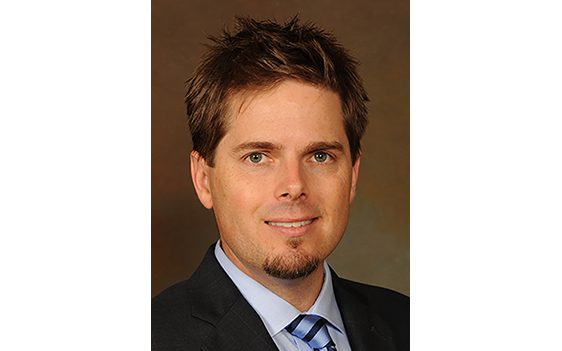Working parents with school-age children, so far, seem to be balancing career obligations with their added parental responsibilities brought on by COVID-19, according to a study conducted by researchers in the College of Business at Clemson University.

The study’s general conclusion: There was little difference in work hours between working parents tending to younger children and those who were not caring for youngsters. It also suggested parents with young children were more likely to be working than those who didn’t have childcare responsibilities.
Scott Barkowski, assistant professor in the John E. Walker Department of Economics, said the inspiration for studying the work-activity of parents with young children during the pandemic was spawned by his own experience.
“My wife and I have four young children and being at home with the children affected my productivity,” he said. “This led to the assumption that parents with young children more generally would have had a tough time working as much as they normally do as the pandemic unfolded because it caused schools and daycare centers to close,” Barkowski said. “After all, someone was going to have to stay home with the children. Thus, our (research) expectation was that parents would be working less, but to our surprise that isn’t what we found.”

The researchers analyzed more than two years of data compiled by the federal government’s monthly Current Population Survey. It polls about 60,000 U.S. households and its data underlies the country’s official unemployment rate. The researchers’ findings are based on the two-month period (April and May) following the school closings, while earlier data was used to establish a baseline for comparison.
“The government survey questions go beyond asking whether someone is unemployed. It covers basic demographics and a number of labor market questions are posed like, are you working, how many hours, and how many you usually work,” Barkowski said. “Using data collected by the survey, we were able to categorize adults with young children that needed childcare and those who did not or who had built-in support for tending to younger children.”
The research found that parents with young children were about 1 percentage point more likely to be working at their jobs during the pandemic than those who didn’t have young children, Barkowski said. “That one percentage point translates into about a half million more parents working who had young children than if they worked at the same rate as adults who didn’t have a young child,” he said.
“We examined the issue three different ways. In one, we compared parents with children under age 13 to those without, while in the other two we focused on parents who all had young children, comparing those who also had teen-agers or grandparents in the house who could babysit for the young child to those that did not. Our results were similar across all three approaches in finding parents did not work less because of their childcare responsibilities.”
Barkowski, whose research interests cover labor and health economics, also said the study’s results were not systematically different for men and women. He suggests other factors, like employer adjustments to allow employees to work at home and the availability of informal sources of childcare, may have been the reasons parents avoided major drops in their ability to work during the pandemic.
Barkowski was joined in the research by Yinlin Dai, a Ph.D. candidate in the John E. Walker Department of Economics and Joanne Song McLaughlin, associate professor, University at Buffalo (N.Y.). The study, which is not yet peer-reviewed, is being prepared for submission to an academic journal.
Get in touch and we will connect you with the author or another expert.
Or email us at news@clemson.edu

